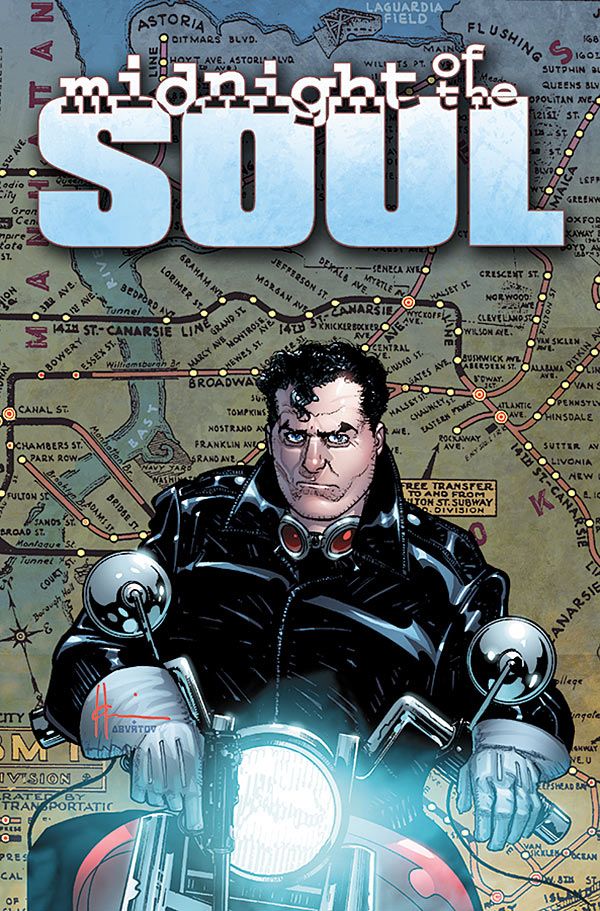The cover to Howard Chaykin's "Midnight of the Soul" #1 features his usual rugged, handsome protagonist, an archetype he has successfully used for decades. Here, his character appears to be a leather-clad biker, but readers learn inside that the cool-looking lead isn't really all that, and that the World War II vet and struggling wannabe writer is hardly living the postwar dream. Coping with addiction, PTSD and a claustrophobic living environment, his character nonetheless develops into a fairly complex one, and one that's almost likeable, especially when a defining moment instantly makes him well worth exploring in future issues.
While there's some degree of complexity to his character, Chaykin's story is remarkably straightforward so far, at least more so than his usual multi-layered plots with large ensemble casts. This first chapter is content to stay in the shallow end of the storytelling spectrum and, as a result, comes across as refreshingly accessible. Chaykin opens the story with pictorial snippets of New York City that are overlaid with lead character Joel's narration, which explains his recent history and establishes his current setting before giving way to his horrific experience during the closing days of the war years before. Chaykin's grimy style fits the mid-20th century New York setting as well as it does the dark WWII flashbacks.
Despite the relative simplicity, though, Chaykin still relies on the intelligence of his readers. The relevance of the images in the early panels seems random and almost pedestrian in places, but becomes clearer as the story progresses. Colorist and frequent Chaykin collaborator Jesus Aburtov gives an assist when the comparatively bright, open images of the Big Apple give way to far more sinister illustrations. In turn, those panels transition into Joel's bare, mundane surroundings; his writing room cleverly and symbolically looks like a cell, with its brick walls and minimal adornments, giving readers a taste of Joel's reclusive nature before it even becomes fully apparent.
Chaykin also makes clever use of parallels across his story, and Joel's narration address this notion head on. The character's self-admitted obsession with the same is a theme throughout; the would-be writer's attempt at short story fiction is, in fact, a peek at a parallel world where the U.S. lost the war to the Nazis. Interspersed with Joel's real-life story, Chaykin's character seems to implicitly ponder how his own now-empty life might have been different under Nazi rule. Joel's wife, unhappy with his addiction and dependent ways, turns out to be living an intriguing parallel life of her own, a development that leads Joel to potentially adopt a different life for himself as well.
Lest anyone think that a less complicated Chaykin story means a cleaner one, fear not; there are traces of the usual sordid and smutty elements Chaykin's work is often known for, and it's accompanied with a fair amount of his trademark colorful language. "Midnight of the Soul" #1 is typical Chaykin, but that's not to say it's the same old Chaykin; he manages to incorporate many of his usual touches, but his story remains fresh as he again demonstrates his skills as one of the industry's most unique and long-lasting veterans.

